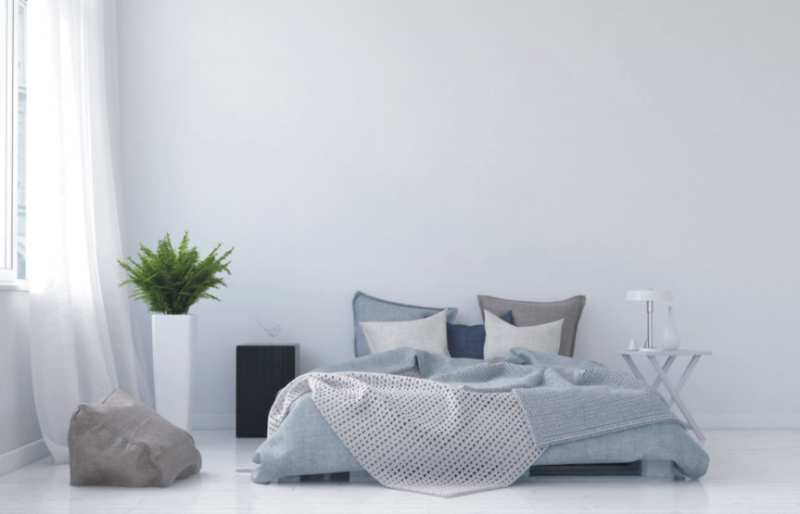
Minimalism is a system and a tool for simplifying life. It promotes focusing on what you value by removing what you don’t. People describe this in many different ways. But they are using different words to describe the same thing. That thing is focusing on what is useful by rejecting whatever is useless. The idea is that for every useless thing you keep, you sacrifice something useful to keep it.
The idea of rejecting whatever is useless can be terrifying, especially to merchants. After all, only buying things you need can reduce their profits. On a related note, many arguments against minimalism seem like the types used by shills. These include strawman arguments and personal attacks on minimalists. In the strawman arguments, they criticize something that is not minimalism. They also call what they criticize minimalism although it is not.
Yet, minimalism is growing in popularity despite all this. Clearly, something is appealing about reducing possessions. There are many good reasons for this. So, here are some of the reasons why minimalism is so popular:
Minimalism allows you to have more money.
After you decide why you want to use minimalism, the first step is to declutter. The most important part of decluttering is to stop buying things you don’t need. Without this step, decluttering will be more difficult and the results will not last. But if you take this step, you will spend less money. The result is that you will have more money left regardless of your income. People understand this concept and like it.
Minimalism gives you more space.
Useless things rob you of your space. Getting rid of the useless stuff will give you back some of your space. In fact, when you get rid of something useless, look at its volume. It’s roughly the amount of space that you added back to your home. By trading in useless stuff for useful space, it improves the quality of your home interior. This is another reason why people like minimalism.
Minimalism makes your home easier to keep tidy.
Every room in every home has a finite amount of space. The more things you put in that space, the less space is available for each item. Too many things in the space can cause you to run out of space for them. If this happens, clutter will pile up on horizontal surfaces and in your path. Also, the place will be impossible to keep tidy because there is not enough space for everything. Something will have to be out of its place.
If you remove enough things from this space, you will have ample space for everything. The room will go from being impossible to keep tidy to being easy to keep tidy. This allows people to have tidier homes for less work.
Minimalism makes your home look better.
It is easier to keep your home tidy if there is a place for everything. Minimalism frees up enough space to make this easy, and tidiness is important to the decor. So your home will look better and will be easier to keep that way. This is another popular feature of minimalism.
Minimalism allows you more time.
Using minimalism means that you waste less time shopping. You also spend less time cleaning and organizing things. Minimalism also encourages you to remove commitments that waste your time. In other words, minimalism shortens your to-do list. The result is that you will have more time to do the things that you want. This is great for busy people.
Minimalism makes your life easier.
As I said before, your home will look better with less effort. Also, you will have more money and time. This is because using minimalism means removing whatever is useless. Removing useless things will improve the efficiency of anything, including your lifestyle. This improved efficiency means that living your life will be easier. This brings relief to a lot of people.
Minimalism allows you to do more.
Because minimalism saves time, money, and space, you should have more of them. Having more time, money, and space allows you to do more things with them. It means you can practice your hobbies, support your causes, and follow your dreams. This helps many people, especially high achievers.
Minimalism works before you finish decluttering.
For every useless thing you get rid of, you get back something useful. It can be something as simple as the useful space that was being wasted. So you will notice improvements well before you finish decluttering. Also, every dollar you stop wasting will be like added income. Whatever the case, you will notice the benefits before you finish your decluttering. This is very encouraging for people who haven’t finished decluttering.
Minimalism helps to create contentment.
During decluttering, it’s normal to realize that you have all the things that you need. In fact, you had too many. That is why you are decluttering in the first place. Realizing that you already have what you need is often satisfying. If not, then it is a reckoning.
In either case, you realize that extra possessions will not make you any happier. This will lead to contentment for some people. For others, the reckoning will improve their chances of finding contentment.
Minimalism helps you to discover what matters.
Knowing you have all that you need teaches you that experiences are more important. In fact, helping with experiences is the reason to have possessions. Possessions can make things easier, more effective, safer, or more enjoyable. Here are some examples:
A car makes it easier to travel long distances on the ground.
A winter coat can help you to keep warm on a cold day.
A fire extinguisher can help to put out a fire.
Decorations can help you to experience beauty in your home.
If a possession doesn’t help you with any experiences, then it is useless. Also, happiness and fulfillment come from experiences. So you will learn to value experiences. This increases the chances of people living happier lives.

Minimalism is flexible.
Different people will find different things to be useful or useless. The factors that affect this are too many to name. So, keeping what is useful and rejecting what is useless will vary with each person. This means that minimalism varies with the minimalist. This means that there is a unique version of minimalism for everyone.
Minimalism can benefit anyone from a poor college student to a multi-billionaire. In fact, the multi-billionaire Elon Musk sold his mansions and moved into a very small home. He did it so that he can focus on human space colonization. The point here is that anyone can use minimalism.
Minimalism has always worked.
Getting only what you need and getting rid of useless things works. It is an excellent way to get the best performance and efficiency out of any system. For example, a formula race car design will exclude useless components. The engineers may call it “good design” or “common sense” instead of minimalism. But regardless of the name, it’s based on the same principle. That principle is the absence of whatever is useless. Applying it to your life will improve your life’s performance and efficiency. Many people have experienced this first-hand. They experience it as more time, space, money, and less stress.
In summary, minimalism is a tool for simplifying your life. It promotes focusing on what you value by removing what you don’t. In other words, it is about keeping what is useful and rejecting whatever is useless. People like it for many good reasons. It allows them to have more space and better-looking homes while saving money. It makes life easier and gives them more time to do what they want. It also shows benefits right away, and it is flexible enough for anyone to use. There is no wonder why it is so popular.
